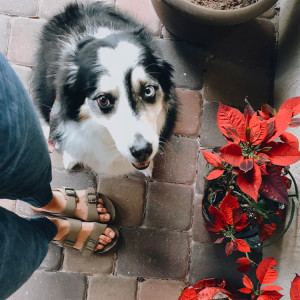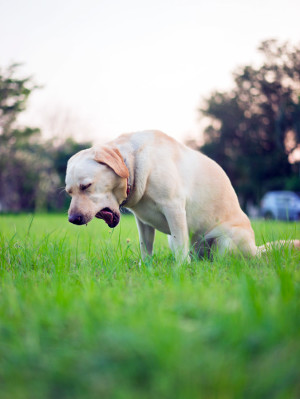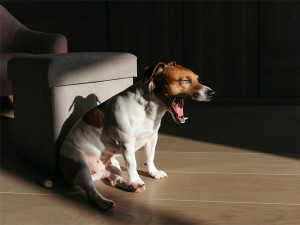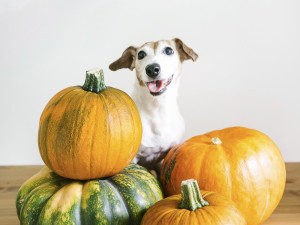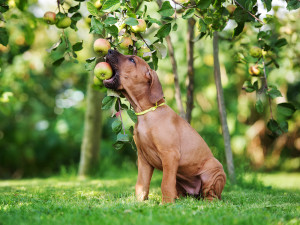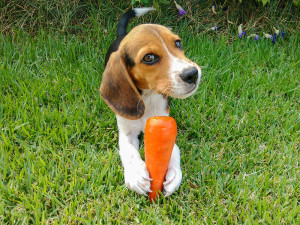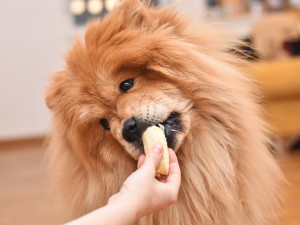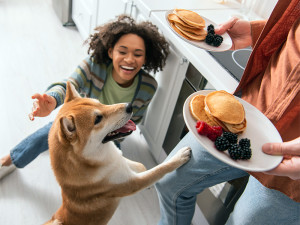The Unexpected Autumn Hazard That’s Toxic to Your Dog
Hours of fun for you, less so for your dog
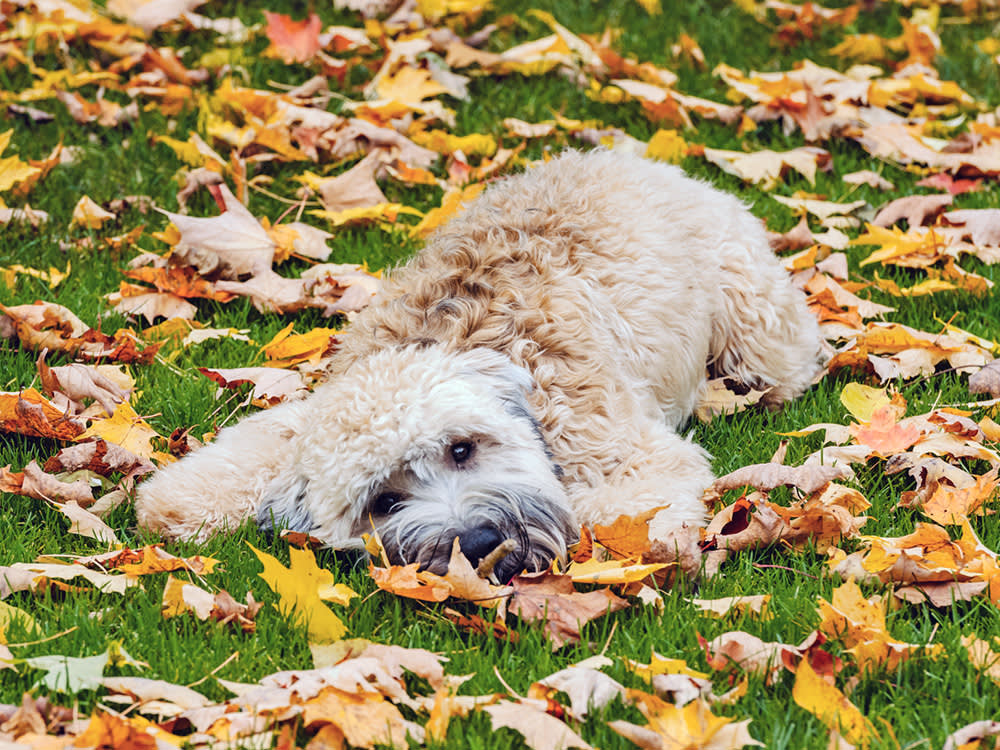
Share Article
There is nothing that demonstrates autumn more vividly than a horse chestnut tree draped in a marvellous cloak of auburn leaves. Any child growing up in the English countryside will know that, scattered around its base, they will find hours of entertainment in the form of conkers. Whilst being the source of fun and competition for children and adults alike, these seeds also hold a certain allure for dogs. Consequently, it is important for dog lovers to be aware that these shiny brown seeds could spell disaster for our four-legged friends.
What are conkers?
Conkers are the seed of the horse chestnut tree and come encased within spiky, green or brown armour. They should not be confused with the sweet chestnut, which also grows in England and whose seeds look similar. The sweet chestnut is perfectly safe for both dogs and humans to eat. Avoid disaster this autumn by learning to differentiate between the two with these handy tips.
The horse chestnut tree has large hand-shaped leaves whereas the sweet chestnut has a long, single serrated leaf. The casing around the seed of the horse chestnut has large spikes protruding from it, with gaps in between, whereas the sweet chestnut is coated in a fuzz of hedgehog-like spines. The horse chestnut seed usually contains a single, shiny brown conker, whereas the sweet chestnut contains a cluster of flattened, smaller triangular chestnuts.
Are conkers toxic to dogs?
Yes, conkers are toxic to dogs. They contain aesculin, which could make your dog sick if eaten. This toxin is found in all parts of the horse chestnut tree, from the bark and leaves to the seeds. The toxins are not evenly distributed so one conker could contain lots of toxin, whilst another could contain very little. This makes it difficult to determine a toxic dose, so it is always recommended to seek veterinary advice if your dog has chewed or swallowed a conker.
Conkers have a bitter taste, which usually prevents your dog from ingesting too much toxin, but in rare, severe cases ingestion can be fatal.
Aside from their toxicity, conkers are the perfect size to be swallowed whole, presenting both a choking hazard and a foreign body risk, especially to smaller dogs.
Symptoms of conker poisoning in dogs
If your dog does decide to eat conkers its important to know what symptoms to watch out for. This really depends on the amount eaten. A small conker snack is likely to contain a tiny amount of toxins. This amount usually affects the gut and your dog may show signs such vomiting (with blood), diarrhoea, abdominal pain and loss of appetite. Drooling is a sign of nausea and you pet may be more thirsty than usual. Remember that these are also the symptoms of can obstruction, which conkers can also cause. Your vet may opt to take X-rays to check.
If your dog feasted on conkers and ingested a large amount of toxin you are more likely to see symptoms related to the nerves and muscles. You may notice that your dog is very hyperactive or unusually depressed. They may have muscle tremors, seizures or even struggle to walk in a straight line. At very high doses the toxins can even cause paralysis, coma, kidney failure and in rare cases, death.
Signs of toxicity tend to appear over the 24 hours after ingestions, but can take anything from 1–48 hours to develop.
What to do if your dog eats a conker
If your dog is holding the conker in their mouth, don’t rush towards them. This usually causes the dog to defend their loot by gulping down whatever they are holding and will result in the conker being swallowed whole. Instead, where possible, offer them something as an alternative. Usually a dog will quickly drop whatever they have in their mouth at the prospect of a tasty treat.
If they have already swallowed the conker, contact your vets immediately. They may offer an appointment to make your dog sick depending on the time of consumption and the size of your pet. If this is not possible, they will treat the symptoms of your pet’s toxicity. Unfortunately there is no antidote to this toxin so we can only treat the symptoms as they appear. This usually involves intravenous fluids and anti-sickness medication.
If the conker becomes lodged in your pet’s gut tract they may require surgery to remove.
Preventing conker poisoning
Never throw conkers for your dog to play with. Instead, always encourage them to play with dog-safe toys. Horse chestnuts are usually found in gardens, parks or on village greens as opposed to within woods. Do not leave your dog unattended near horse chestnut trees and walk them on a lead through these trees. If your dog is particularly intent on picking conkers up then avoid the trees entirely or consider muzzling your pet whilst around them.
Long autumn walks with your dog is something we all enjoy, but with around 470,000 horse chestnut trees across the UK, it is important to be aware of the dangers conkers can pose. Should your pet chew or swallow a conker, call your vet immediately for their advice on what to do next.

Dr Nina Blackmore, MRCVS, BVSc, PgCertSAECC
Nina Blackmore is a vet who, after leaving the Royal Army Veterinary Corps, took up two very different lives. For four long, chaotic days each fortnight she lives in a tiny house next to a small animal veterinary hospital in Boston, managing hospitalised patients and treating any emergency cases that turn up. As well as emergencies she also has a keen interest in pain management and acupuncture. The rest of her time is spent in a quirky bungalow in Rutland where she and her husband run a self sufficient small holding and a dog home boarding business. She spends her life surrounded by animals and has made it her life goal to help as many as possible.
Related articles
Can Dogs Eat Pumpkin?
Yep! The superfood is a delicious natural remedy for diarrhoea and constipation
![Ridgeback puppy eating an apple from a low-hanging tree]()
Can Dogs Eat Apples?
Yep – this fibre-filled fruit is a healthy treat for your dog
![Beagle puppy dog holding a peeled carrot in its front paws sitting in the grass]()
Can Dogs Eat Carrots?
Yes, this crunchy, sweet vegetable is a great addition to your dog’s diet
![A person giving a banana to a dog.]()
10 Fruits and Vegetables That Your Dog Can Feast On
Indulge your dog (safely) with these delicious and healthy snacks
Can Dogs Eat Blackberries? The Ultimate Guide to Safe Snacking
Blackberries can be a healthy, tasty treat for your dog – without the worry

